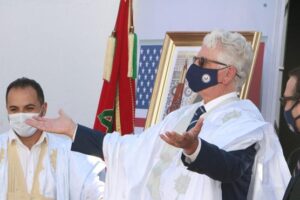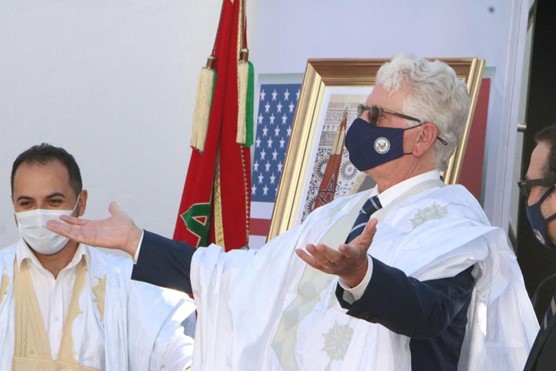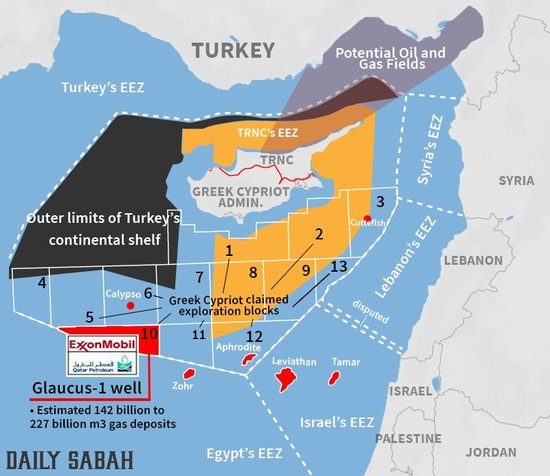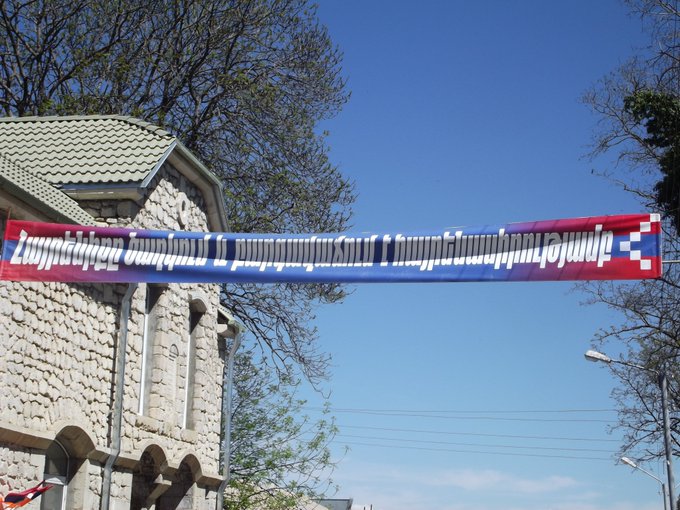U.S. Recognition of Moroccan Claims to Western Sahara: Mixed Consequences and a Diagnosis
On 10 December 2020 outgoing U.S. President Donald Trump announced that the U.S. recognised Moroccans claims to sovereignty over Western Sahara. Mixed consequences will likely follow Trump’s proclamation. The decision has already led to impacts on the ground. The move has also created new uncertainties. U.S. recognition will nevertheless make no impact in some stakes of the conflict. Beyond these varied impacts, the events surrounding Trump’s recognition are a reminder of the political vulnerability of the citizens of de facto states.
Morocco partially invaded Western Sahara, a former Spanish colony in northwest Africa, in 1976. In the same year, the national liberation movement for Western Sahara, Polisario Front, founded the Sahrawi Arab Democratic Republic (SADR) as an independent state for Western Sahara. According to the terms of a UN brokered ceasefire established in 1991, Polisario Front and Morocco control easterly and westerly portions of Western Sahara respectively. Since 1991 the UN has run a mission for a referendum on self-determination for the people of Western Sahara.
Over the past decades, the rivalry between Morocco and Polisario Front for Western Sahara has moved from the battlefield to diplomatic struggles. As they have vied over who would be eligible to vote in a referendum and the options that would appear on the ballot paper, the two claimants have also competed for international legitimacy. Recognition for the respective claims of SADR and Morocco to Western Sahara is a key means of seeking this legitimacy.
SADR was a founding member of the African Union, and by 2006 had 58 active recognitions, while a further 22 had by then been suspended or withdrawn. Moroccan diplomatic efforts have continued to chip away at SADR’s recognition in international society. A recent analysis places the number of states that currently recognise SADR at 36, and the number of states that currently recognise Moroccan claims to sovereignty over Western Sahara at 65. 2017 also saw the Kingdom rejoin the African Union, opening up the possibility of pushing for a future vote there to oust SADR.
With Trump’s change of policy, the U.S. became the first permanent member of the UN Security Council that recognised Morocco’s claims to Western Sahara. This is an undoubted boost to Morocco’s ambitions to stay on in the territory whilst minimalizing the political and economic costs of doing so. Though Trump’s decision supports Morocco in pursuing this goal, it nevertheless promises a mixed bag of consequences. The proclamation quickly led to impacts on the ground: a foreseeable backlash by Moroccan authorities against Sahrawi activism in support of self-determination. Sahrawi human rights group Equipe Média reported the arrest on 15 December 2020, and subsequent mistreatment during detention, of Youssef Bougharioune.
If a Moroccan backlash against Sahrawi human rights activism was predictable, on other questions the U.S.’s change of policy has created uncertainties. One question is whether Joe Biden’s administration will rescind the recognition, as former U.S. Secretary of State James Baker, among others, has called for. Moroccan officials think that this unlikely. Given that Morocco normalized relations with Israel in exchange for U.S. recognition of the Kingdom’s claims to Western Sahara, and given the importance that the U.S. places on the normalization of Arab states’ relations with Israel, some U.S. analysts also foresee pressure on Biden not to rescind recognition. But in the wake of the internationally embarrassing scenes of Trump supporters storming the U.S. Capitol, a window of opportunity may have opened. A new administration keen to reassert its claims to stand for the rule of law and respect for democracy could demonstrate this not only at home, but also further afield. Rescinding U.S. recognition of Moroccan claims to Western Sahara would signal a commitment to uphold, rather than disregard, international law.
There are other uncertainties. The recognition fell at a critical time of the breakdown of the ceasefire between Morocco and Polisario Front. On 13 November 2020 Morocco fired at peaceful protestors at Guerguerat in Western Sahara, in reaction to which Polisario Front declared a resumption of war. The U.S.’s further endorsement of Morocco jeopardises prospects for the reinstatement of the ceasefire. A further question is whether the plans announced for opening a U.S. consulate in Dakhla, Western Sahara, will become a concrete reality on the ground. In practice, among those countries that have recognised Moroccan claims to Western Sahara, to date 20 have opened consulates in either El Ayoun or Dakhla. Another area to watch is the effect of U.S. recognition on U.S. investment in Western Sahara and on U.S. commercial interests with Morocco. The recognition announcement reached the press at the same time as news of an anticipated sale of U.S. aerial drones to Morocco, and plans for U.S. investment in a wind power plant in Dakhla.

Image: U.S. Ambassador David T. Fischer in Dakhla to launch the official process for opening a U.S. consulate facility in “Morocco’s Southern Provinces” (Source: U.S. Embassy and Consulates in Morocco)
Further uncertainties concern how other parties will react to the recognition, and especially how the AU will respond to international acquiescence and endorsement for one AU member state taking over another AU member state. Many member states will find much to dislike and apprehend in the setting of such a precedent. Another question is whether or not other major powers will follow the U.S.’s lead. Even if further recognitions follow, other frontiers of legitimacy – such as the contested legality of Morocco’s exploitation of resources in Western Sahara – may ultimately have more practical bearing than recognition on Morocco’s rule in Western Sahara.
Looking beyond the predictable consequences and resultant uncertainties of Trump’s proclamation, there are also stakes of the conflict where U.S. recognition is either unable or unlikely to have any consequences. The decision of any one country, however powerful, to recognise the claims of another state to Western Sahara cannot override international recognition of the right of the people of Western Sahara to self-determination. Trump’s decision is also unlikely to have any impact on the commitment of the many Sahrawis in Western Sahara, in exile in Algeria, and in diasporic communities spanning North Africa, Europe and beyond, who mobilise to enact that right. New generations of Sahrawis across these sites demonstrate their support of self-determination, and rehearse participation in a future act of self-determination when they take part in SADR and Polisario Front elections. Given this transterritorial, multigenerational and institutional support for Sahrawi nationalism, it is unlikely that U.S. or others’ recognition of Moroccan claims to Western Sahara will dissipate Sahrawi appetites for self-determination.
The consequences of the U.S. decision to recognise Moroccan claims to Western Sahara range from the predicable to the uncertain and the null. Whilst the events surrounding U.S. recognition promise mixed consequences, they are diagnostic of one of the predicaments confronting denizens of de facto states. The lack of full international recognition for their state authorities increases the exposure of those living in these polities to becoming negotiating pieces in the agendas of more powerful states. This befell Sahrawis and Palestinians in Trump’s deal with Morocco. Those consequences of marginality in international society are hard to avoid.
Author: Alice Wilson






